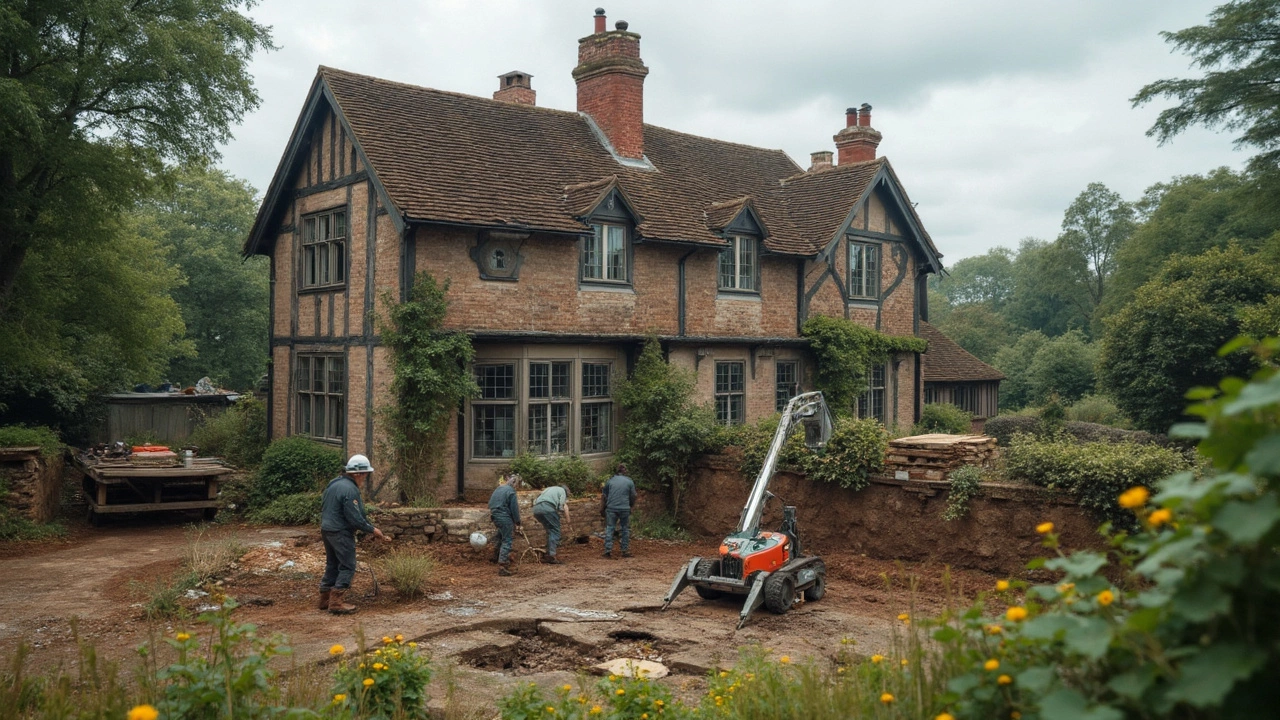Damage Repair Guide for Home and Garage Doors
If something’s cracked, swollen, or not working right, you want it fixed fast. Whether it’s a cracked garage door panel, a foundation crack, or water damage in the basement, the right steps can save you time and money. Below you’ll find straight‑forward advice on what to look for, how to handle small fixes yourself, and when it’s smarter to call in a professional.
Spotting the Most Common Types of Damage
First, identify what you’re dealing with. Most homeowners run into these three problems:
- Garage door damage: bent springs, warped panels, or noisy rollers.
- Foundation cracks: horizontal or vertical cracks that appear in walls or floors.
- Water intrusion: damp spots, mould, or rust near the base of walls.
Each issue has a tell‑tale sign. A garage door that won’t close usually makes a grinding noise or stalls halfway. Foundation cracks often run along the same line for a few feet and may widen over weeks. Water damage shows as dark stains, a musty smell, or peeling paint.
Do‑It‑Yourself Fixes You Can Try Today
Before you grab the phone, try these quick fixes. They’re safe for most DIYers and don’t need special tools.
Garage door springs: If a spring looks broken, tighten the opposite side’s tension with a wrench. Never attempt to replace a spring yourself – it’s dangerous. Instead, call a garage door specialist.
Small foundation cracks: Clean the crack with a brush, then fill it with a high‑quality epoxy filler. Smooth it with a putty knife and let it cure for 24 hours. This stops water from seeping in.
Water stains on walls: Locate the source – a leaky pipe or roof gutter. Tighten connections or replace a small section of pipe. After fixing the leak, dry the area with a fan and apply a mould‑resistant paint.
If any repair feels beyond your skill level, stop. Bad fixes can make damage worse and cost more later.
When to Call in a Professional
Some damage is best left to the experts. Call a professional if you see any of these red flags:
- Cracks wider than 1/4 inch or spreading quickly.
- Garage door springs that are snapped or heavily rusted.
- Persistent dampness despite fixing obvious leaks.
- Any structural damage that affects load‑bearing walls.
Professionals have the right equipment, insurance, and experience to assess the problem safely. A garage door service can test spring tension, align tracks, and replace panels. A foundation contractor can recommend underpinning, carbon‑fiber reinforcement, or full wall replacement if needed.
Insurance and Damage – What’s Covered?
Before you file a claim, check your policy. Most homeowner policies cover sudden, accidental damage but not wear‑and‑tear. For example, a burst pipe that floods the basement is usually covered, while slow‑leak damage over years may not be. Garage doors often fall under “personal property” – if a storm breaks a panel, you can claim the repair cost.
When you contact your insurer, have these items ready:
- Photos of the damage before you start fixing anything.
- Receipts for any emergency repairs you’ve already done.
- A written estimate from a licensed contractor.
Clear documentation speeds up the claim and reduces the chance of disputes.
Keeping Damage From Coming Back
Prevention beats repair every time. Here are three habits that keep your home and garage door in good shape:
- Inspect doors and foundations twice a year – before winter and after heavy rain.
- Keep gutters clear to avoid water pooling near foundations.
- Lubricate garage door rollers and hinges every six months.
Regular checks catch tiny problems before they grow into costly repairs.
Dealing with damage doesn’t have to be a nightmare. Spot the issue early, try safe DIY fixes, know when to call an expert, and understand your insurance. Follow the simple steps above and you’ll keep your home and garage door running smoothly for years to come.

Can Foundation Repair Cause More Damage?
Mar 3, 2025, Posted by Damon Blackwood
Foundation repair is essential for maintaining a home's structural integrity, but it can sometimes lead to unexpected issues if not done correctly. This article explores the potential risks and complications arising from foundation repair, giving homeowners the knowledge they need to make informed decisions. It looks into common mistakes that could lead to more damage and offers practical advice on avoiding them. Readers will also get a sneak peek into the importance of hiring professional services for foundation repairs.
MORESEARCH HERE
Categories
TAGS
- foundation repair
- commercial construction
- construction
- new builds
- home improvement
- home renovation
- bathroom renovation
- construction materials
- residential construction
- building codes
- home foundation
- building types
- renovation tips
- building materials
- foundation cracks
- construction differences
- contractor
- home construction
- architectural services
- structural damage